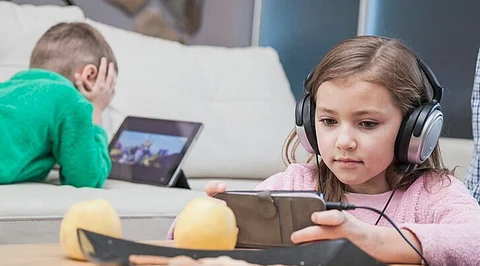How Learning Games Impact Kids: A Personal Experience
As a parent, navigating the digital landscape can be challenging, especially when it comes to balancing screen time with productive activities. I've spent countless hours researching and experimenting with various online tools and games to find the perfect balance for my kids. Through this journey, I discovered the profound impact learning games can have on children, turning what could be wasted screen time into valuable learning experiences.
The Shift from Passive to Active Learning
Initially, my kids spent their screen time watching videos and playing random games that offered little educational value, which I noticed was shrinking their attention spans and failing to stimulate their minds. Concerned, I began exploring learning games that could provide both fun and education. One standout was Solitaire, a game I remembered from my own childhood but had never considered educational. Introducing it to my kids, I was surprised to see them hooked, developing strategic thinki
Building Vocabulary and Critical Thinking
Another game that made a significant difference was mini crossword puzzles. Encouraging my kids to play Crossword puzzles was one of the best decisions I made. It started as a fun activity we did together, but soon I saw the benefits unfolding. According to a study by the American Journal of Play, kids who regularly engage in word puzzles exhibit better vocabulary and reading comprehension skills.
mini crossword puzzles became our favorite weekend activity. My children’s vocabulary expanded, and they became more adept at spelling and understanding word meanings. It was a joy to see them getting excited about learning new words and using them in conversations. The game also taught them critical thinking, as they had to decipher clues and think about how words fit together.
Enhancing Memory and Focus
Incorporating learning games into our routine also had a noticeable impact on my kids' memory and focus. Regularly playing Solitaire helped them develop better concentration. The need to remember card placements and plan sequences required them to focus intently, and this translated into improved attention spans in other areas of their lives, including schoolwork.
Encouraging Problem-Solving Skills
Problem-solving is a crucial skill for kids to develop, and learning games are excellent tools for this. mini crossword puzzles, with their challenging clues, require kids to think outside the box and use logic to find the right answers. This has helped my children become more adept at solving problems in everyday situations, whether it's figuring out a math problem or resolving conflicts with friends.
A Balance Between Fun and Learning
What I love most about learning games is the balance they provide between fun and education. My initial concern was that my kids might resist these games if they felt too much like homework. However, games like Solitaire and mini crossword manage to strike the perfect balance. They are engaging and enjoyable, so my kids often don’t even realize they’re learning.
Building Confidence Through Achievements
One of the most rewarding aspects of incorporating learning games into my kids’ routine has been watching their confidence grow. Completing a challenging mini crossword puzzle or winning a game of Solitaire gives them a sense of accomplishment. They are proud of their achievements, which boosts their self-esteem and encourages them to take on new challenges.
Statistical Insight
A statistic that stood out to me during my research was from a report by the Joan Ganz Cooney Center, which found that 57% of parents believe digital games promote positive social skills and collaboration. This reinforces my experience that learning games are more than just solitary activities; they can foster teamwork and communication skills when played together or discussed as a family.
Reducing Mindless Screen Time
One of the biggest benefits of learning games is that they reduce mindless screen time. Instead of spending hours on passive activities like watching videos or playing non-educational games, my kids now spend their screen time more productively. They are learning new skills, improving their cognitive abilities, and having fun all at the same time.
Conclusion
Adding learning games to my kids’ daily routine has made a huge difference. Games like Solitaire and mini crossword have turned screen time into something valuable. They’ve taught my kids skills like solving problems, thinking critically, and learning new words, all while having fun. If you want to make your children’s screen time more useful, I suggest trying out educational games. They mix fun and learning perfectly, helping kids grow and learn in ways that just watching videos can’t match. Give them a shot—you might find these games become a favorite part of your family’s day, just like they have for us.
.png)

